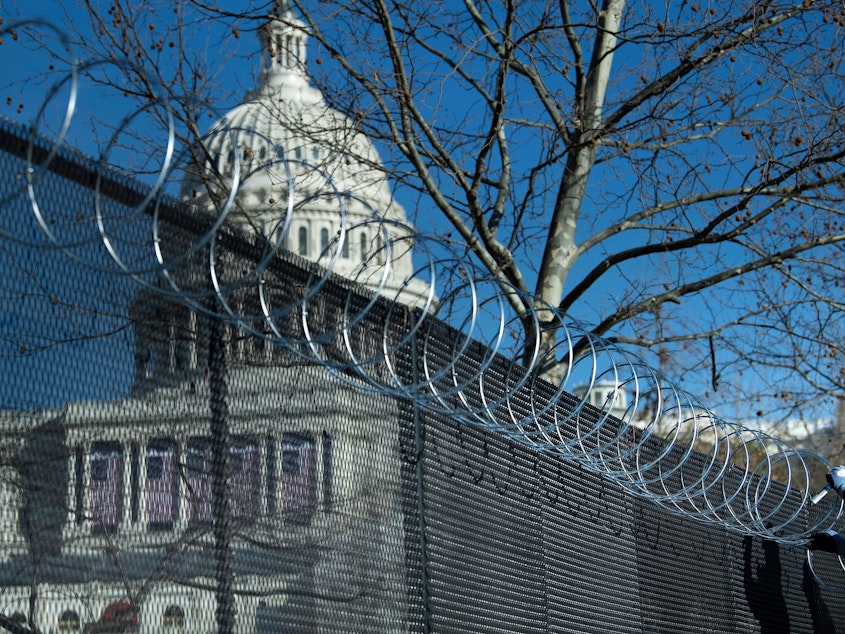Strict Security Measures In Place Across The Nation Ahead Of Inauguration Day

Law enforcement officials are bracing for possible serious security breaches and violent assaults ahead of President-elect Joe Biden's swearing in next week. State and federal officials are taking no chances as the countdown begins for Inauguration Day.
The heightened security comes after a violent siege at the U.S. Capitol last week from pro-Trump supporters that resulted in the death of five people and forced lawmakers into hiding.
The FBI is seeing "an extensive amount of concerning online chatter...about a number of events surrounding the inauguration," according to the bureau's director Christopher Wray.
Some events have already been impacted by threats. A rehearsal for Biden's inauguration originally scheduled for Sunday has been postponed because of security concerns. Biden's team has also canceled an Amtrak trip from Wilmington to Washington set for Monday, according to multiple reports.
The FBI has warned state governments that the agency is tracking plans for armed protests at all 50 state capitals and in Washington, D.C., in the days leading up to Inauguration Day.
On the ground support
The U.S. Secret Service is the lead agency responsible for the inauguration security plan.
Army Secretary Ryan D. McCarthy has authorized an additional 14,000 National Guard troops to support the 59th Presidential Inauguration, bringing the total number of soldiers expected to be deployed in the city up to 21,000.
The Washington Post reports Lamont J. Ruffin, the chief deputy U.S. marshal for the District of Columbia, said his office is planning to deputize between 3,000 and 4,000 local law enforcement officers from across the country. Those officers will come into Washington to help with security at the request of the Metropolitan Police Department.
State capitals prepare
Washington, D.C. has implemented strict travel restrictions across the city for the inauguration.
Metro is closing 13 rail stations inside the security perimeter for the inauguration, with 11 stations closing on Friday and two additional stations closing on Saturday through next Thursday. Trains will bypass those closed stations without stopping.
"We are working closely with our regional and federal partners to keep the public safe during this National Special Security Event and to discourage travel within the secure zone," said General Manager Paul J. Wiedefeld.
The National Park Service may close the National Mall for Biden's presidential inauguration, but a final decision hadn't been made as of early Friday morning.
"When a decision is reached, an announcement will be made by the United States Secret Service and/or National Park Service," the Park service said.
Statehouses nationwide also plan to batten down the hatches as the FBI reports increased threats of violent attacks to local governments as well.
The Missouri House of Representatives just this week approved new police powers for its security staff. Extra law enforcement officers were called to help at the Capitol building.
The FBI's branches in Portland, Ore., Louisiana, and Phoenix announced agents are working with local law enforcement to monitor for any threats in those areas.
Airports, airplanes make changes
The Transportation Security Administration remains on high alert following the events at the U.S. Capitol.
Airlines are also implementing new rules. Delta, American, Southwest, United and Alaska airlines announced this week that customers flying into any of the airports in the Washington, D.C. area will not be allowed to bring guns into their checked baggage through the week of the inauguration.
American is also suspending all alcohol service on flights to and from D.C. from Jan. 16 to 21. [Copyright 2021 NPR]

